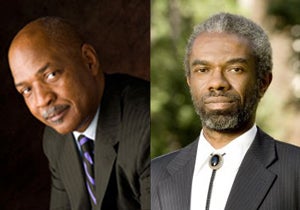The following op-ed by Harvard Law School Professor Charles Ogletree and University of Richmond School of Law Professor Jonathan Stubbs LL.M. ’79 was featured in the Opinion section of the April 27 edition of Politico.
In the article, the authors offer their view on the violence arising in response to a non-violent protest movement recently begun in Uganda. The country’s Kampala regime has responded to demonstrations with the use of force, and the authors assert that “international donors like the United States must stop funding [the regime]” if the violence continues.
According to the authors: “If the United States and other democracies stand up for the Ugandan people in their nonviolent resistance, they may be able to teach many other sub-Saharan Africans … that challenging autocratic regimes can lead to democratic changes. … without international pressure, the movement for peaceful people’s democracy in Uganda is likely to result in death of more innocent victims.”
Ogletree is the Jesse Climenko professor of law and director of the Charles Hamilton Houston Institute for Race and Justice at Harvard Law School. His latest book is The Presumption of Guilt: The Arrest of Henry Louis Gates, Jr. and Race, Class and Crime in America. Stubbs, who received an LL.M. from HLS in ’79, has been a professor at the University of Richmond School of Law since 1995.
Washington walks Ugandan tightrope
by Charles Ogletree and Jonathan Stubbs
Much of the world has been transfixed by the nonviolent protests sweeping across the Middle East — all too often met by violent government retaliation. Outside the global spotlight, however, another nonviolent protest is gathering steam.
The movement, called The Positive Non-Violent Resistance campaign, is in Uganda. The Kampala regime is responding by tear gassing, beating, arresting and, in some cases, killing the nonviolent protesters. Nonetheless, the Ugandan freedom movement could become a model of how to transform societies under autocratic rule, moving them toward multiparty democracies. … Read the full article at Politico.com »
